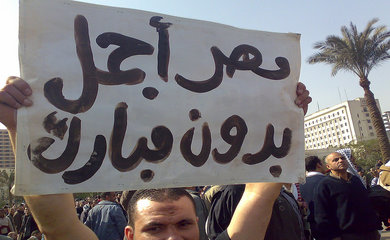Given the Islamist terrorist threat Egypt faces in the form of the Ansar al-Maqdis group operating in that country’s Sinai Peninsula, along with that groups pledge of allegiance to the Islamic State terror group, will the United States policy regarding military aid to Cairo consequently be reevaluated?
Islamist jihadi groups with a similar outlook to Islamic State are in awe at the gains that group has made in Iraq and Syria in recent months. To the extent that the Ansar group in Egypt, along with the Ansar al-Sharia group in neighbouring Libya, have pledged their allegiances and seek to emulate that group’s successes and assist it in the erection of the black flag of jihad over more territory. The Sinai has seen violence and terrorist bombings aimed primarily at Egyptian state security and military forces. As for Libya, that country has no real competently functioning government and is at risk of fracturing along tribal lines and becoming an anarchic Somalia-like state in North Africa where various factions and terrorist groups reign supreme.
And in the middle of it all sits Egypt, an important country and regional power. At present the United States Congress is highly lukewarm about the state of democracy in Egypt in light of the July 2013 coup which ousted the Muslim Brotherhood President-elect Mohammed Morsi. Since that time, the successive Egyptian government has banned that organization. In the post-July 2013 crackdown over 1,400 people have been killed. Instability and economic turmoil have taken their toll on Egypt and its society. The recent acquittal of the former Egyptian autocrat Hosni Mubarak has led many to sombrely conclude that the Egyptian Revolution of January 2011 and its promise of democracy and a new Egyptian democracy is now completely dead.
Congress can prevent any sitting administration in Washington from providing Egypt with economic and military aid (which it has been doing for many decades now) if Cairo is neither democratic nor taking clear and concrete steps to implement a democratic order. It seems that Egyptian President Abdel Fattah el-Sisi’s government isn’t and isn’t taking solid steps to do so. His government’s controversial ban on protests and its sweeping restrictions on freedom of speech and assembly signify that this may be the new military-backed authoritarian regime in Cairo.
While there are some legal obstacles which any Washington administration will need to overcome in order to give the authorities in Cairo the aid they might request we may soon see the United States government reconsider entirely that policy toward Cairo and instead justify giving at least temporary military, and with it at least tacit political, support to a person like Mr. Sisi as an expedient countermeasure to the Ansar terror threat. Hence forgoing those democracy principles the United States frequently promulgates and instead helping to prop up a government in Egypt with very close ties (that’s putting it very mildly) with the powerful oligarchy-like establishment that is the Egyptian military in the name of fighting terrorism.
Sisi has essentially tried to sell such a policy himself. In his first interview with an international news organization in May of this year Sisi insisted that the U.S. should continue to provide his country with $1.3 billion a year in military aid. Why? Because Egypt Sisi says is “fighting a war against terrorism.” A war in which they “need American equipment to use to combat terrorism.”
American equipment such as AH-64 Apache helicopter gunships. Delivery of such weaponry were halted for some time due to, legitimate, concerns over the nature of the present government in Egypt. Concerns which given the present climate and Sisi’s adamant promotion of himself as a bulwark against Islamic State-related violence in North Africa could very well be cast aside or put on the back-burner for the foreseeable future – with those Apaches for example an exception was made solely because they were needed for the Sinai campaign against Ansar. Sisi in turn will have a relatively freehand when it comes to stymieing any dissent or opposition on the home-front as his government may seek to introduce new, and sweeping, anti-terrorism laws which will, more likely than not, serve a dual purpose which will include giving the state the right to arbitrarily arrest, detain and interrogate (the latter is a word you know has often been employed as a rather shady euphemism in the not-so-distant past) former Brotherhood members and members of any other group or political party the powers that be in Cairo deem to be threatening to their interests and positions of power.
It’s a tough dilemma. Risking having a weak Egypt in the face of such a terrorist threat in its midst certainly wouldn’t be a smart or prudent move. What would be an ideal solution would be one whereby the United States assists Egypt in combating these Islamist threats within its midst now, but at the same time does ensure that aid is provided under the condition that a broad long-term reform process in Egypt is gradually adapted, whereby reactionary and laws which are authoritarian by nature are rolled back and rescinded over time. After all keeping an autocratic system completely closed is a stupid thing to do, but so is opening up such a system too quickly. Broadly speaking that approach should be taken, which in turn would not see to the U.S. completely cease from upholding those democratic principles, which it should uphold wherever it can and wherever it has the influence to do so.
“Egypt is Beautiful Without Muburak,” photo by Ramy Raoof, licensed under a Creative Commons Attribution 2.0 Generic license

